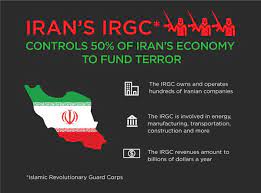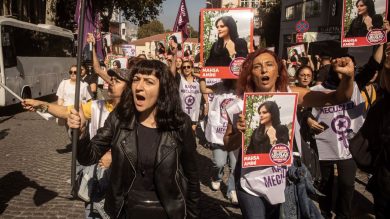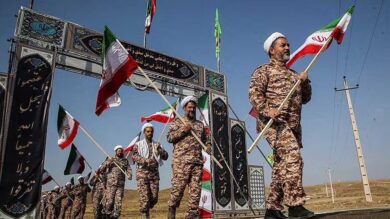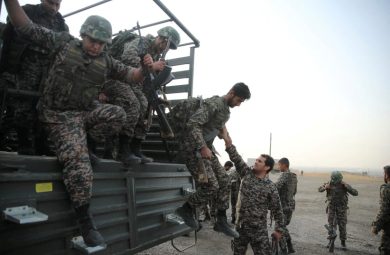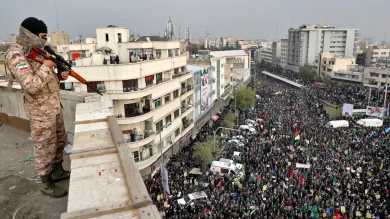The Iranian diaspora has become a critical force in amplifying the voices of Iranian women resisting oppression under the Islamic Republic and the IRGC. Spread across the world, Iranian exiles, activists, journalists, and scholars are playing a pivotal role in keeping the movement alive by raising awareness, lobbying for international action, and supporting grassroots movements.
Iranian women, both inside and outside Iran, have been at the forefront of resistance, with the slogan “Women, Life, Freedom” symbolizing their fight for equality, justice, and democracy. However, facing severe crackdowns, state violence, and censorship, their struggle requires global support—a role that the Iranian diaspora has increasingly taken on.
This report explores how the Iranian diaspora is:
• Amplifying the voices of Iranian women through media and activism.
• Providing financial and humanitarian aid to women and their families inside Iran.
• Pressuring foreign governments to take diplomatic and economic action against the IRGC.
• Building international solidarity through protests, advocacy, and digital campaigns.
1. The Power of the Iranian Diaspora in Advocacy and Awareness
A. Media and Journalism: Keeping the World Informed
One of the most significant contributions of the Iranian diaspora has been in journalism and digital media, ensuring that news of protests, human rights violations, and women’s resistance reaches the world despite the Iranian regime’s media censorship.
• Exiled journalists such as Masih Alinejad have used social media platforms to highlight the stories of Iranian women defying hijab laws and state oppression.
• Diaspora-run media outlets like Iran International, Radio Farda, and BBC Persian provide real-time updates, countering the Iranian regime’s propaganda and disinformation.
• Citizen journalism, supported by diaspora activists, has empowered Iranian women inside Iran to document their struggles and resistance through encrypted channels.
This flow of information is critical, as the IRGC regularly shuts down the internet during protests, trying to isolate Iranian activists from the world.
B. Social Media as a Tool of Resistance
Diaspora activists have harnessed social media to spread awareness about the oppression of Iranian women and to mobilize global action.
• Hashtag campaigns like #WomenLifeFreedom, #MahsaAmini, and #FreeIranianWomen have kept the movement alive in global conversations.
• Platforms like Twitter, Instagram, and Telegram have been used to coordinate international protests and expose human rights violations.
• Digital security experts from the diaspora help Iranian activists bypass censorship, providing VPNs and secure communication channels.
This digital activism has helped build international pressure, forcing governments and organizations to address the Iranian regime’s oppression.
2. Financial and Humanitarian Support for Women in Iran
A. Funding Legal Aid and Safe Spaces
The Iranian diaspora has established legal defense funds to support:
• Women imprisoned for protesting against mandatory hijab laws.
• Families of detained activists who need financial assistance for legal fees.
• Safe houses and escape routes for women facing imminent danger.
B. Direct Financial Support
Due to the Iranian regime’s economic mismanagement and sanctions, many women activists and their families struggle financially. The Iranian diaspora has:
• Provided emergency funds for families of killed or imprisoned protesters.
• Supported independent women-led businesses struggling under state restrictions.
• Helped in relocation efforts for at-risk activists, ensuring they can continue their work from exile.
Despite government crackdowns on foreign funding, diaspora-led initiatives continue to find ways to send support to women inside Iran.
3. Political Pressure and International Sanctions
A. Lobbying Governments to Take Action
Iranian diaspora groups have actively lobbied governments in the U.S., Europe, and Canada to:
• Sanction IRGC leaders responsible for human rights violations against women.
• Cut diplomatic and economic ties with the Iranian regime.
• Support resolutions in the United Nations and European Parliament condemning gender apartheid in Iran.
For example, activists in the U.S. and Europe successfully pushed for:
• Sanctions on Iran’s Morality Police after the killing of Mahsa Amini.
• Travel bans on Iranian officials involved in suppressing women’s protests.
B. Pushing for IRGC’s Terrorist Designation
Many in the Iranian diaspora are campaigning for:
• The European Union, UK, and Canada to officially designate the IRGC as a terrorist organization.
• Increased restrictions on Iranian assets abroad, preventing funding of oppressive forces.
These diplomatic efforts weaken the IRGC’s ability to continue targeting women activists and help build international isolation for the regime.
4. Protests and Solidarity Movements Around the World
A. Mass Protests in Support of Iranian Women
The Iranian diaspora has organized global protests in major cities around the world:
• Berlin, Paris, London, Washington D.C., Toronto, and more have seen massive demonstrations supporting Iranian women.
• These protests pressure governments and raise international awareness about Iran’s human rights violations.
B. Collaboration with Feminist and Human Rights Groups
• Iranian diaspora activists have formed alliances with global women’s rights organizations, including Amnesty International, Human Rights Watch, and UN Women.
• Feminist movements worldwide have adopted Iranian women’s struggle as part of the broader fight for gender equality and human rights.
This global solidarity has strengthened the movement and made it harder for the Iranian regime to suppress dissent without consequences.
5. The Role of the Iranian Diaspora in Shaping Iran’s Future
A. Building a Vision for a Post-Regime Iran
Many in the Iranian diaspora are actively working on plans for a democratic Iran, focusing on:
• Women’s rights and gender equality in future governance.
• Constitutional reforms to prevent systematic oppression.
• Economic and social policies that empower Iranian women.
B. Educating the Next Generation of Leaders
Diaspora organizations have invested in:
• Scholarships for Iranian women activists to study abroad.
• Leadership programs to prepare women for roles in politics, media, and advocacy.
• Cultural exchanges to connect Iranian women in exile with those inside Iran.
This long-term investment ensures that women will play a central role in shaping a free Iran.
Conclusion: A Global Fight for Freedom
The Iranian diaspora has proven to be an essential force in supporting women’s resistance against IRGC oppression. From journalism and digital activism to political lobbying and financial support, their role is critical in ensuring that Iranian women’s voices are heard, protected, and empowered.
The fight for a free Iran is not just inside the country—it is global. As long as Iranian women continue to resist, the diaspora will continue to amplify their fight, proving that oppression cannot silence freedom.
Join Our Newsletter!
Stay informed with the latest updates, news, and ways to take action in the fight for justice and global security. Sign up now to get updates delivered straight to your inbox!

